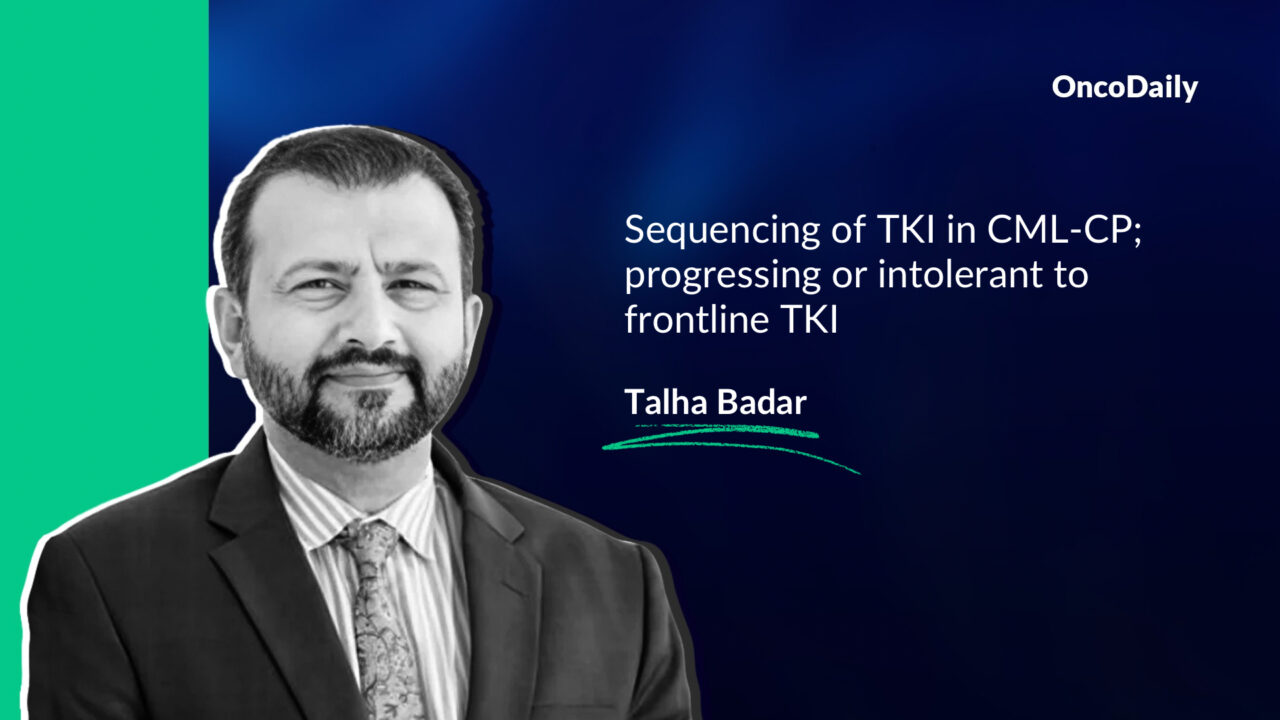Talha Badar, Hematology/Oncology specialist at Mayo Clinic, shared a post on X:
“Brief overview on ‘Sequencing of TKI in CML-CP; progressing or intolerant to frontline TKI’
First steps in decision making.
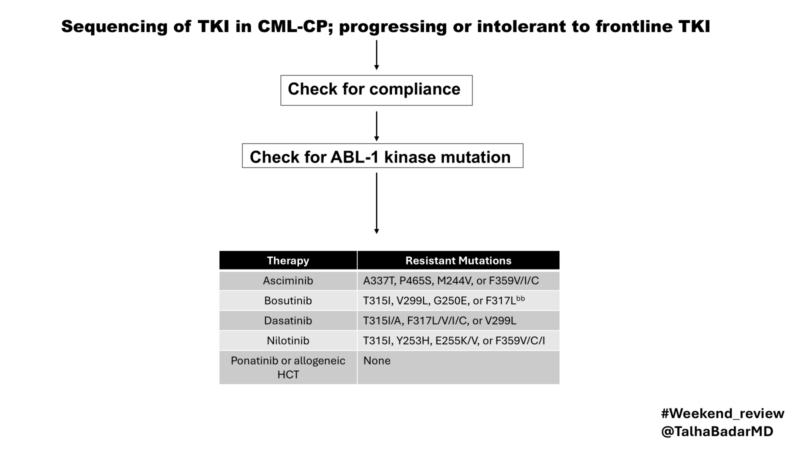
Key consideration if switching for toxicity.
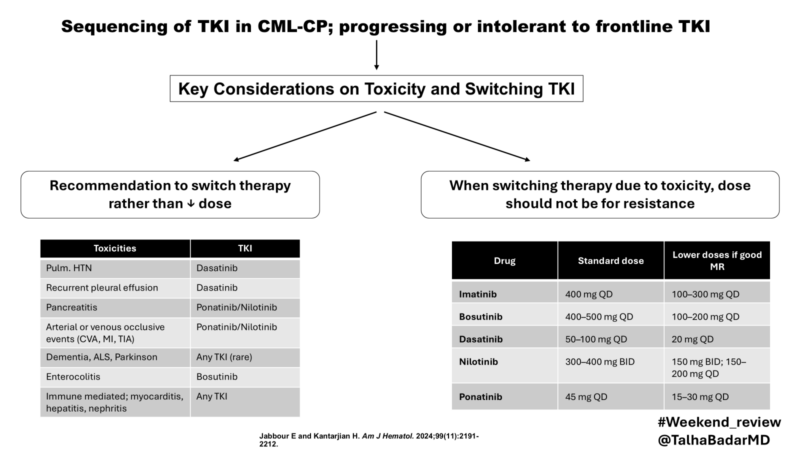
2nd gen after 1 gen TKI.
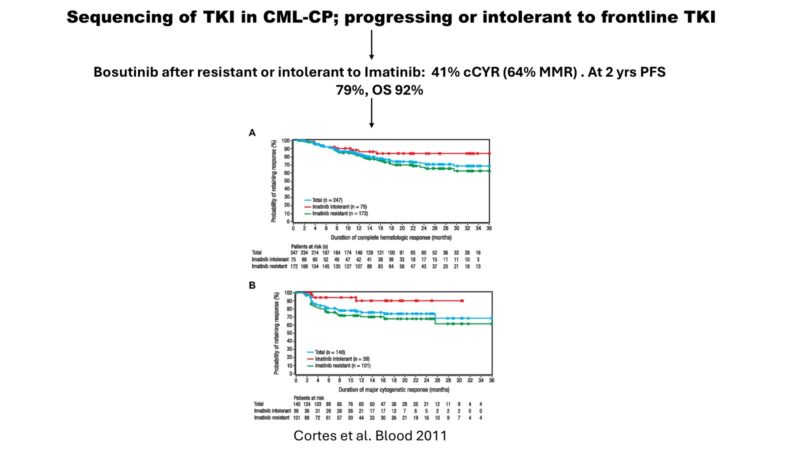
Asciminib was superior to bosutinib, improved efficacy with better tolerance with response-based dose modification.
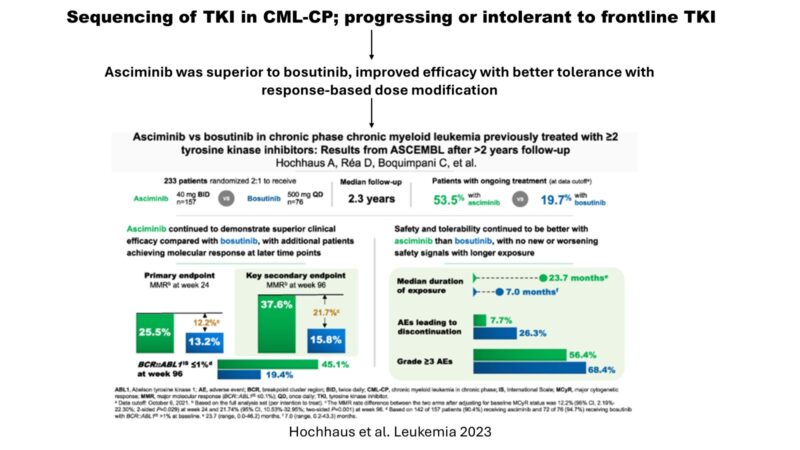
Asciminib for T315I: 62% cCyR (ponatinib naive 81%) and 48.9% MMR (ponatinib naive 68.4%).
Cortes et al. Leukemia 2023.
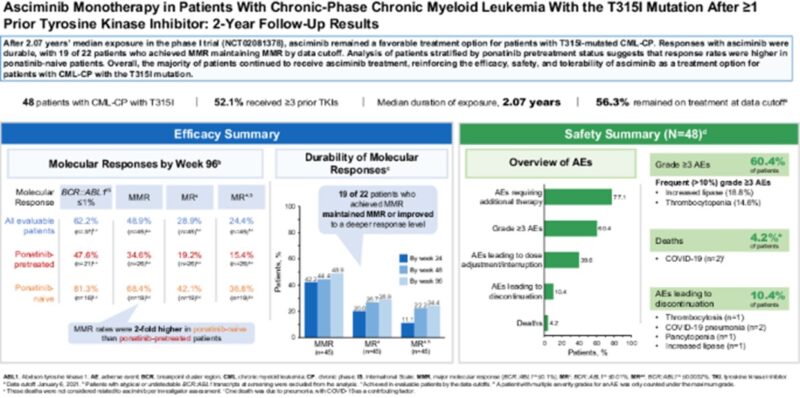
Ponatinib after 2 prior TKIs, improved efficacy with better tolerance with response-based dose modification
Jabbour et al. Leukemia 2024.
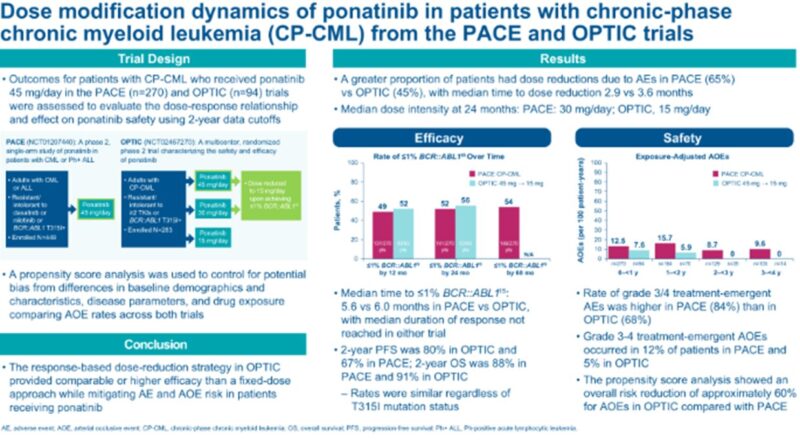
Olverembatinib, including pts with prior PONATINIB or ASCIMINIB, cCyR 62.5%, MMR 42%. cCyR 60%, MMR 42.4% after PONATINIB or ASCIMINIB.
Jabbour et al. JAMA Oncology 2024.
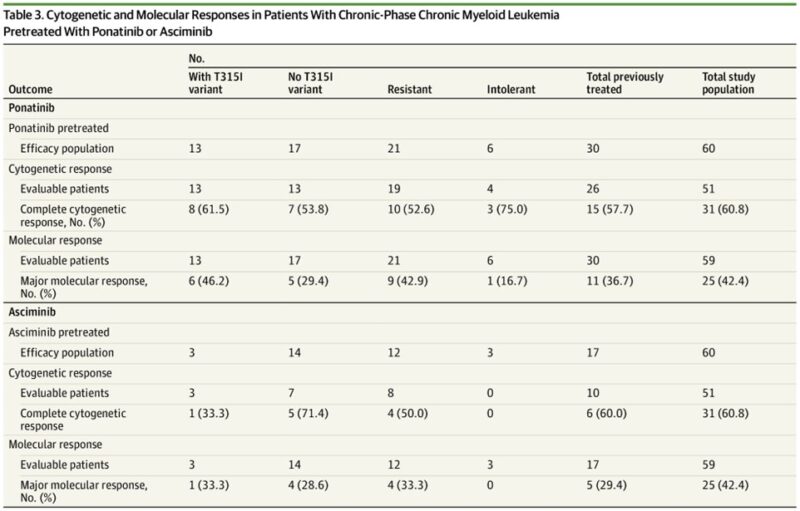
Vodobatinib, including pts with prior PONATINIB or ASCIMINIB, cCyR 60%, MMR 47%.
Cortes et al. Lancet Hematology 2025.

After progressing on 2nd generation TKI, ponatinib is better drug than different 2nd generation recycling
Jabbour et al. AJH 2025.
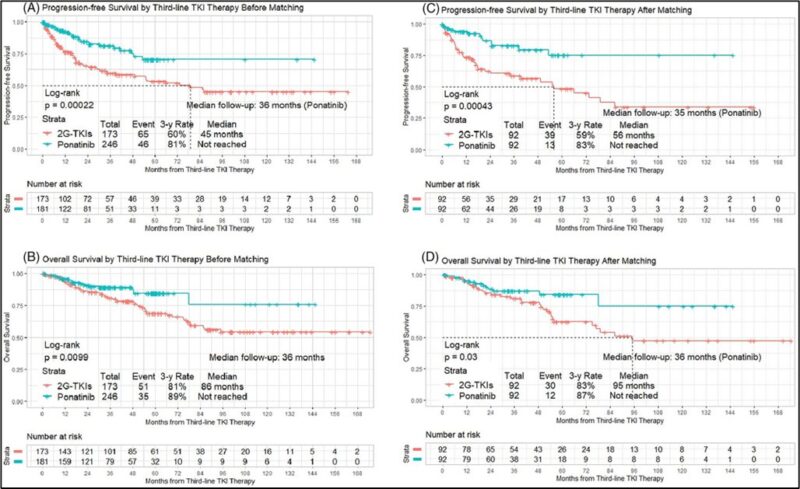
Summary:
Before switching check for compliance – ABL Kinase mutation.
Certain toxicities warrant switching rather dose reduction.
After progressing on 2nd Gen, 3rd Gen TKI should be preferred.”
More posts featuring Talha Badar.


